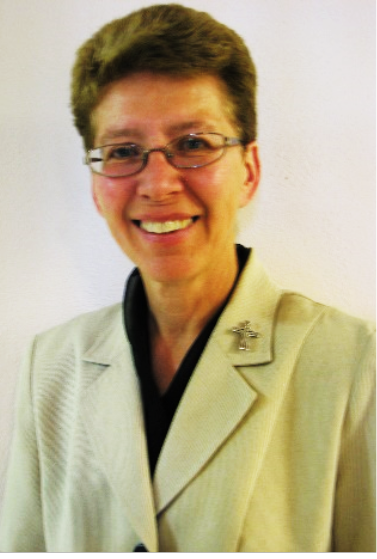- By Sr. Mary Valerie Schneider
We may be wondering about the price of eggs. Perhaps this year it will be more economical to fill plastic eggs with dollar bills. But I’m not talking here about the price of eggs. The customs of Lent vary greatly depending upon the century. Even the length of Lent has
- By Sr. Mary Valerie Schneider
John the Baptist did something entirely new. His name “Baptist” or “Baptizer” proves it. The word literally means one who “immerses in” or “submerges.” The dunking had nothing to do with common Jewish practices of ritual purity done by the individual. It was an entirely new way. John’s symbolic action
- By Sr. Mary Valerie Schneider
I love reading historical novels. Even though the characters are fictional, the setting, the dialogue, the plot give credibility. I feel the reality of history. I wonder if many of our ancestors could be characters in novels. Do you have a story like this one in your family background? My
- By Sr. Mary Valerie Schneider
In her book Firstlight Sue Monk Kidd claims “All personal theology should begin with the words: ‘Let me tell you a story.’” Jesus used this technique, his parables explaining deep truths. Lately we Sisters have been communicating via Zoom to prepare for a convocation this summer. Having read assigned articles
- By Sr. Mary Valerie Schneider
Had you asked me a couple days ago what I would be doing today, I would have said “What I do every Sunday. Play piano for two Masses, probably visit in a care facility, read.” Some inches of snow on the roads and the car yanked me from my normal
- By Sr. Mary Valerie Schneider
Lent is taking a long time to arrive this year. As I write this, we still have almost 20 more days until Ash Wednesday (March 5th), but it’s not too early to consider Lenten practices. You’ve heard it before: Pray, fast, and give alms. Maybe you’re considering “more.” Could I
- By Sr. Mary Valerie Schneider
Saint Paul really liked the Philippians, always thanking God for them and praying for them with “joy” and being in “partnership in the gospel” (Phil. 1:3). Paul is even confident that God who began a good work in them “will go on completing it until the Day of Jesus Christ.”
- By Sr. Mary Valerie Schneider
Four of us Sisters of Notre Dame participated in a day for students at St. Paul Schools in Norwalk to consider priestly and religious vocations . After a panel presentation, a freshman girl talked to the Sister directing the questions to the panel. Looking as if she had made a
- By Sr. Mary Valerie Schneider
Several of us young women (who made every effort to appear grown up and fearless) arrived at the Sisters of Notre Dame Novitiate on February 2, 1968. (Full disclosure, this blogger has been in the Sisters of Notre Dame community for over 50 years.) I was scheduled for a 3:15
- By Sr. Mary Valerie Schneider
Fifty-seven years ago today I was in my home of 18 years. It was the last night to sit in the kitchen, which I thought I’d never see again. Even though there were several inches of snow on the ground, I put on shorts. I knew it would be the






